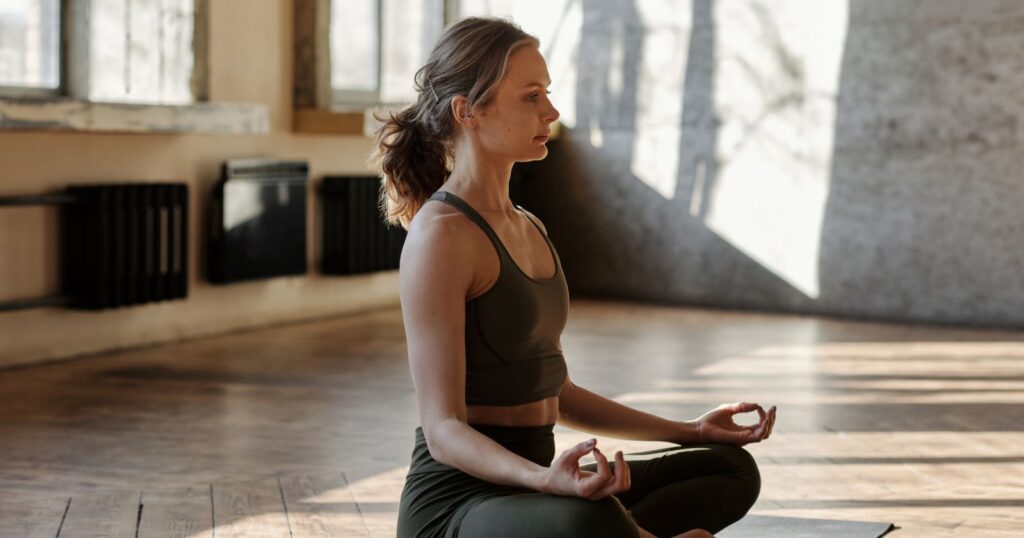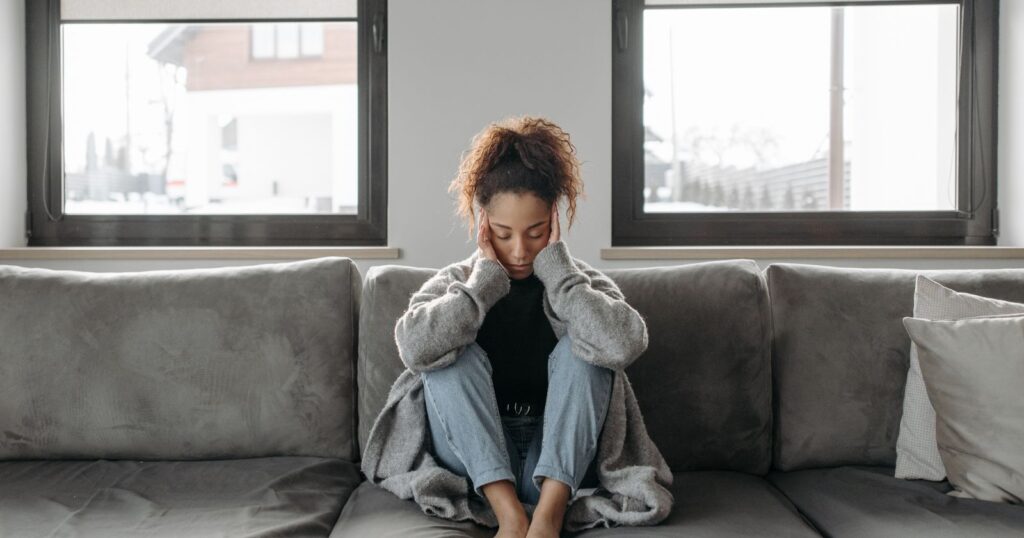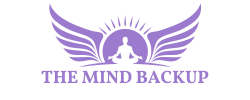Headaches are a common problem that can interfere with your daily life. While over-the-counter medicines can help, they are not always the best choice for everyone.
Luckily, there are many natural ways to relieve headaches without using medicine. Here are some simple and effective methods on how to cure a headache without medicine.
Common Reasons for Headaches

Understanding the causes of headaches can help in preventing and managing them effectively. Here are some of the most common reasons people experience headaches:
How to Cure a Headache Without Medicine
- Dehydration: Not drinking enough water can lead to dehydration, which often causes headaches. The brain can temporarily shrink from fluid loss, causing pain and discomfort.
- Stress: Stress can cause the muscles in your neck and shoulders to tighten, leading to tension headaches. Stress also triggers chemical changes in the brain that can cause headaches.
- Lack of Sleep: Not getting enough sleep or having poor-quality sleep can trigger headaches. Sleep is crucial for overall health and well-being, and its lack can disrupt body functions.
- Dietary Triggers: Certain foods and drinks can trigger headaches, including caffeine, alcohol, and foods containing tyramine (like aged cheeses). Skipping meals can also lead to headaches due to a drop in blood sugar levels.
- Poor Posture: Sitting or standing with poor posture can strain your neck and back muscles, leading to tension headaches.
- Eyestrain: Spending long hours staring at a computer screen or reading without proper lighting can strain your eyes and cause headaches.
- Environmental Factors: Bright lights, loud noises, strong smells, and changes in weather or altitude can trigger headaches in some people.
- Hormonal Changes: Women often experience headaches due to hormonal changes during their menstrual cycle, pregnancy, or menopause.
Types of Headaches and Their Reasons
There are several types of headaches, each with different causes and symptoms. Here are the most common types:
1. Tension Headaches
Symptoms:
– Dull, aching pain
– Sensation of tightness or pressure across the forehead or on the sides and back of the head
– Tenderness in the scalp, neck, and shoulder muscles
Causes:
– Stress
– Poor posture
– Anxiety
– Muscle strain
2. Migraines
Symptoms:
– Moderate to severe throbbing pain, usually on one side of the head
– Nausea and vomiting
– Sensitivity to light, sound, and smells
– Visual disturbances (aura)
Causes:
– Genetic factors
– Hormonal changes
– Stress
3. Cluster Headaches
Symptoms:
– Severe, burning, or piercing pain, usually around one eye
– Redness and tearing of the eye
– Nasal congestion or runny nose on the affected side
– Restlessness and agitation
Causes:
– Unknown, but may be related to abnormalities in the hypothalamus
– Possible triggers include alcohol and strong smells
4. Sinus Headaches
Symptoms:
– Deep and constant pain in the cheekbones, forehead, or bridge of the nose
– Pain usually intensifies with sudden head movement or straining
– Nasal congestion
– Fever
– Swelling in the face
Causes:
– Inflammation or infection of the sinuses (sinusitis)
– Allergies
5. Rebound Headaches
Symptoms:
– Frequent or daily headaches
– Often occur upon waking up
– Resemble tension-type or migraine headaches
Causes:
– Overuse of headache medications
– Withdrawal from pain relievers
How to Cure a Headache Without Medicine

Here are some of the ways to help you cure a headache without medicines:
1. Drink Plenty of Water
One of the most common causes of headaches is dehydration. Drinking enough water throughout the day is very important for your health and can help prevent and relieve headaches. Aim to drink at least eight 8-ounce glasses of water each day. If you feel a headache coming on, drink a full glass of water and continue to sip small amounts throughout the day. Staying well-hydrated can make a big difference in how you feel.
2. Use a Cold or Warm Compress
Using a cold or warm compress on your head can provide quick relief. A cold compress, such as an ice pack or a cold cloth, can reduce swelling and numb the pain. This method works well for migraines. For tension headaches, a warm compress can help relax tight muscles. Simply apply the compress to your forehead, temples, or the back of your neck for 15-20 minutes. It’s an easy and effective way to soothe a headache.
3. Practice Relaxation Techniques
Stress is a major cause of headaches. Practicing relaxation techniques like deep breathing, meditation, and progressive muscle relaxation can help reduce the frequency and intensity of headaches. These techniques promote relaxation and reduce stress, which can prevent headaches from occurring.
Deep Breathing
- Find a quiet, comfortable place to sit or lie down.
- Close your eyes and take a deep breath in through your nose, allowing your abdomen to expand.
- Exhale slowly through your mouth.
- Repeat this process for several minutes, focusing on your breath and allowing your mind to clear.
Meditation
- Sit comfortably and close your eyes.
- Focus on your breath or a single point of reference.
- Allow thoughts to come and go without judgment, bringing your focus back if it drifts.
- Practice this for at least 10 minutes daily.
4. Get Enough Sleep
Not getting enough sleep can trigger headaches. Making sure you get 7-9 hours of quality sleep each night can prevent headaches and improve your overall health. Create a bedtime routine to help your body wind down, such as reading a book, taking a warm bath, or practicing gentle yoga. Good sleep is essential for preventing headaches and feeling your best.
5. Eat a Healthy Diet
Certain foods and drinks can trigger headaches, including caffeine, alcohol, and foods containing tyramine (like aged cheeses). Keeping a food diary can help identify any dietary triggers. Eating regular, balanced meals rich in fruits, vegetables, whole grains, and lean proteins can stabilize blood sugar levels and prevent headaches. A healthy diet is key to preventing headaches and staying healthy overall.
6. Try Essential Oils
Essential oils, particularly peppermint and lavender, have been found to reduce headache symptoms. Peppermint oil has a cooling effect that can help alleviate tension headaches, while lavender oil can promote relaxation and reduce migraine symptoms.
How to Use Essential Oils
- Dilute the essential oil with a carrier oil, like coconut or almond oil (a few drops of essential oil in a tablespoon of carrier oil).
- Massage the mixture onto your temples, forehead, and back of the neck.
- Inhale the scent by taking deep breaths.
7. Exercise Regularly
Regular exercise can reduce the frequency and severity of headaches. Physical activity increases endorphins, which are natural painkillers, and helps reduce stress. Aim for at least 30 minutes of moderate exercise, such as walking, swimming, or cycling, most days of the week. Staying active is a great way to prevent headaches and stay healthy.
8. Acupuncture and Acupressure
Acupuncture involves inserting thin needles into specific points on the body, which can help alleviate headache symptoms by promoting energy flow and reducing pain. Acupressure, a similar technique without needles, involves applying pressure to these points to relieve tension and pain. Consulting with a professional can provide targeted and effective relief.
Acupressure Technique
- Use your thumb and index finger to apply gentle pressure to the point between your eyebrows.
- Hold the pressure for about 10 seconds, then release.
- Repeat this process a few times, focusing on relaxing the muscles and reducing tension.
9. Chiropractic Adjustments
Chiropractic care focuses on the alignment of the spine, which can impact overall health. Misalignments in the spine can cause tension and lead to headaches. A chiropractor can perform adjustments to alleviate pain and improve spinal health, potentially reducing the occurrence of headaches. Seeing a chiropractor regularly can help prevent headaches and improve your overall well-being.
Read more about personal development: Go to Homepage
Headaches are a common issue, but they don’t always require medication for relief. By staying hydrated, using compresses, practicing relaxation techniques, getting enough sleep, eating a healthy diet, trying essential oils, exercising regularly, and exploring alternative therapies like acupuncture, acupressure, and chiropractic care, you can effectively manage and prevent headaches naturally.
Incorporating these strategies into your daily routine can lead to a healthier, headache-free life. Remember, natural remedies take time and consistency, so be patient and persistent. By taking a holistic approach to your health, you can find relief from headaches without medicines.
Adopting these natural methods will not only help you cure headaches without medicines but also promote overall wellness. Try these tips and discover a more balanced, healthier you.
